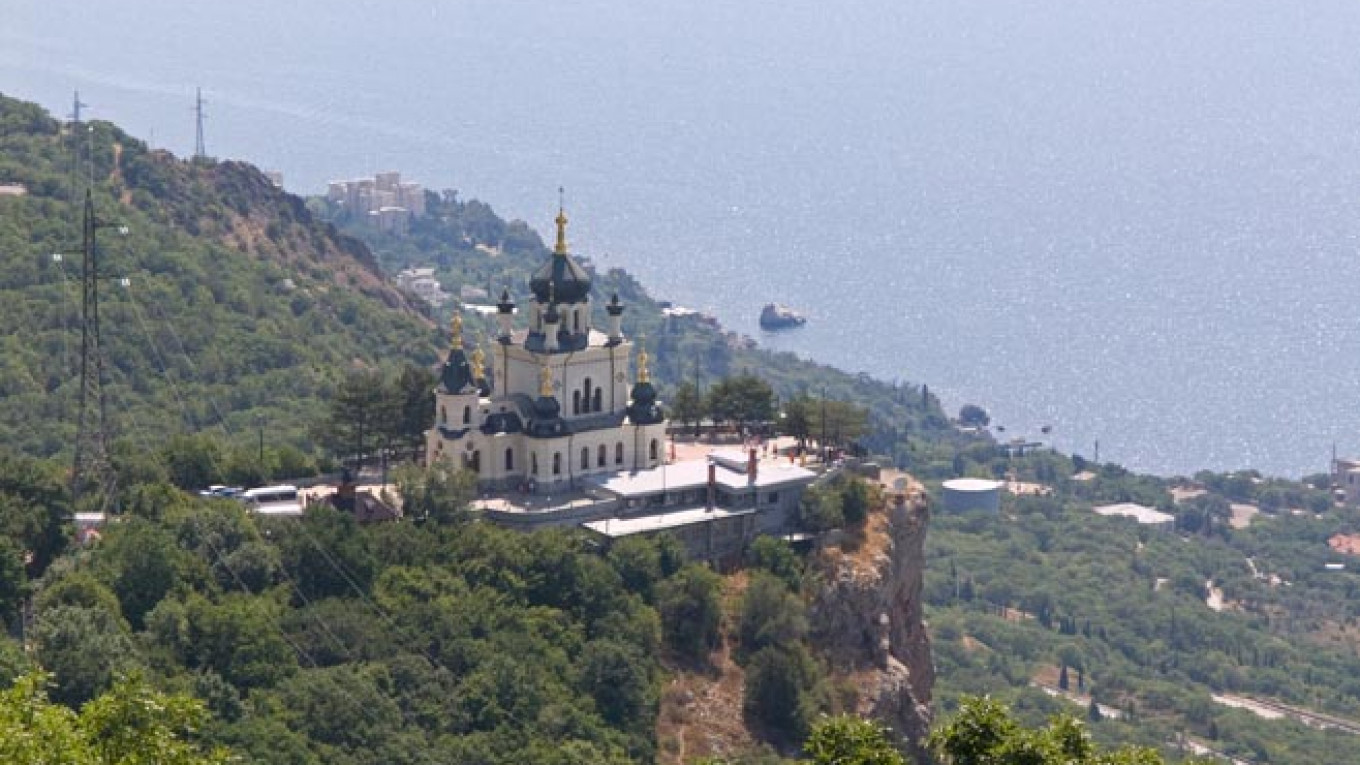The conflict between Russia and the Western world has created a complicated dilemma. The West feels compelled to respond to Russia's open violation of international and legal norms but is afraid to disrupt economic ties with Russia and undermine the economic growth that is starting to take place in the U.S. and some parts of Europe. This dilemma explains why the West chose narrow sanctions, but they are largely ineffective.
It seems strange to apply sanctions against "Putin's friends" — for example, businessmen Arkady and Boris Rotenberg. Even if Putin and the two brothers are old friends from St. Petersburg, nobody really believes they could talk Putin out of taking decisive action. And even if they feel a little pain from the sanctions, surely Putin has ways of making up for the loss.
The annexation of Crimea caused the present conflict with the West. But is it fair to blame ordinary Russians for the Kremlin's aggression? The West has nothing to gain from undermining the Russian economy. Therefore, the sanctions should be extremely focused on Crimea.
Not a single major country has recognized the legitimacy of the annexation. Thus, Crimea is a territory de facto occupied by a foreign state. The most effective sanctions would therefore apply to companies working in the occupied zone.
The West should target all individuals and companies complicit in the crime. All State Duma deputies who voted in favor of annexing Crimea should become personae non gratae. Whatever faults Bank Rossiya might have, it holds no direct connection to the Kremlin's adventurism.
When sanctions are applied, they should be a response to actions, not an attempt to forestall them. Any business that carries out operations on occupied territory is contributing to the occupation and should therefore be subjected to sanctions.
If, for example, Aeroflot has flights to Simferopol, its agreements with Europe and the U.S. should be suspended. If Sberbank opens branch offices in Yalta, no bank in the world should honor Sberbank cards or accounts. If Gazprom lays a pipeline across the Kerch Strait, its South Stream project should be shut down.
Not only would everyone find such an approach easier to understand, but it has been repeatedly used with success against companies from countries that have seized foreign territory. And it will succeed in convincing Russia that the annexation of Crimea will come with high costs to businesses operating in the occupied territory.
The Kremlin understands that it will be expensive to support Crimea. Direct subsidies for social services alone will cost from $2 billion to $2.5 billion annually, not to mention the enormous outlays required for infrastructure. That is why the Kremlin is "lobbying" business to invest $5 billion in Crimea. (In Russia, when the Kremlin "lobbies" businesses, it is making an offer — or strong suggestion — they cannot afford to refuse.)
The goal of sanctions should be to make Crimea unbearably expensive for Russia's federal budget and for businesses that invest in Crimea. The current euphoria would quickly give way to apathy and then discontent. In the end, Russia's joy over its great Crimean victory will pass, leaving only the burden of exorbitant expenses.
If the West sticks with its original plan for sanctions, they will come off less as sanctions and more as a declaration of war.
Vladislav Inozemtsev is a professor of economics and director of the Moscow-based Center for Post-Industrial Studies.
A Message from The Moscow Times:
Dear readers,
We are facing unprecedented challenges. Russia's Prosecutor General's Office has designated The Moscow Times as an "undesirable" organization, criminalizing our work and putting our staff at risk of prosecution. This follows our earlier unjust labeling as a "foreign agent."
These actions are direct attempts to silence independent journalism in Russia. The authorities claim our work "discredits the decisions of the Russian leadership." We see things differently: we strive to provide accurate, unbiased reporting on Russia.
We, the journalists of The Moscow Times, refuse to be silenced. But to continue our work, we need your help.
Your support, no matter how small, makes a world of difference. If you can, please support us monthly starting from just $2. It's quick to set up, and every contribution makes a significant impact.
By supporting The Moscow Times, you're defending open, independent journalism in the face of repression. Thank you for standing with us.
Remind me later.








